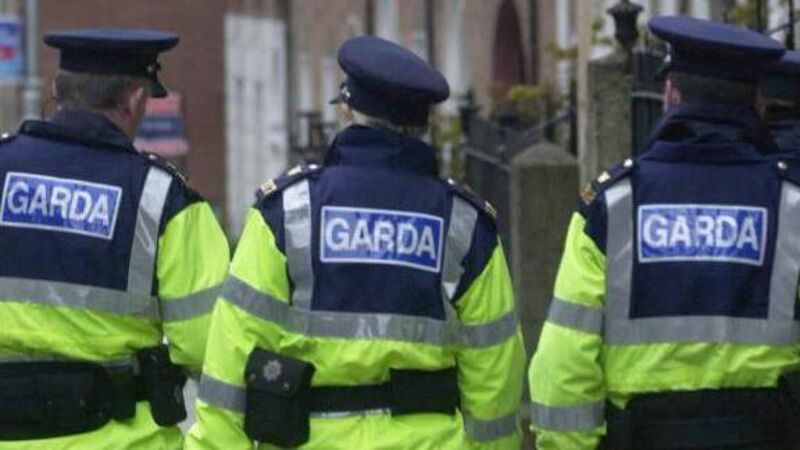A cultural shift that will make Ireland a better place

Gardaí can adapt cultural competency to forge a better force.
PROFESSOR of Anthropology James Spradley defined culture as “the acquired knowledge people use to interpret experience and generate behaviour”.
Competency is a set of demonstrable characteristics and skills that enable and improve the efficiency of an individual or institution.
The ‘cultural competency’ definition is evolved from many diverse perspectives, interests and frameworks. Social change and social justice, international and national demographic shifts as a result of globalisation, socio-economic, political and climate changes and the emergence of social media and community platforms have intensified the importance of cultural competency at the individual, local and state levels.
In addition, the persistence of issues related to cross-cultural contexts, inequalities, breakdowns in intercultural communication and racial and ethnic hatred persuade us to look beyond surface issues, into the deeper levels of the ‘cultural iceberg’.
I see culture as an institution’s set of beliefs that impact intellectual, emotional and societal practices which shape individual and institutional functioning. Competency in this arena occurs when the sets of skills which lead towards the fulfilment of cultural needs are carefully assessed through the lenses of diversity, inclusion, equality and equity.
Cultural competency is displayed through behaviours of active listening, empathy and appreciation of similarities and differences.
Ireland’s culture is rich and diverse. It is most known for its love of traditions, customs, music, dance and language which creates its unique national identity. Aside from Gaelic, Irish culture includes Scottish, Viking, Norman, English and Tudor English influences.
Contemporary Irish culture has brought many colours to its cultural landscape. In the 2016 Census, there were 535,475 non-Irish nationals - representing 200 different nations. This increased cultural fusion has enhanced diversity in modern Irish life, in turn creating opportunities for the state and its institutions to harness a wider scope of skills, approaches, languages, and customs, to facilitate the country and its institutions to develop and grow.

A culturally competent agency, institute or organisation has characteristics of valuing diversity, assessing cultural needs, considering the dynamics of cultural interaction, institutionalising cultural knowledge and reflecting the service with an understanding of cultural diversity. The manifestation of these characteristics should be evident in all areas including policy-making, administration, the ethos of the organisation, its practice and service delivery and structures. Cultural competency is a developmental and continuous process which evolves with a thorough assessment of the diverse and changing needs of society.
Cultural competency also initiates the practice of honouring and respecting the beliefs, languages, attitudes, lifestyles, values, needs, and behaviours of individuals (consumers) and communities. Through honouring all of society, a mutually beneficial and productive system develops, that facilitates states to progress - as the productivity of individuals increases in an encouraging and welcoming environment. Learners find encouragement in such inclusive environments and advocate for others in addition to themselves - a life-long process of self-awareness becomes meaningful.
Cultural competency requires examination on a personal level also.
Individuals need to develop their understanding of the value of diversity and similarities between themselves and others and learn to respond effectively in unfamiliar situations and cultural settings.
Cultural competency entails examining one’s own attitude and values and facilitating other individuals with different values to gain through interacting, socialising, learning and working in cross-cultural situations. This is an adaptative approach, becoming aware of one’s own and one’s institutional styles and behaviours whilst delivering services that are accessible to all and engaging ‘others’. It motivates us to enable, support and professionally institutionalise cultural knowledge.
This also requires paying attention to non-violent communication and linguistically appropriate actions. It challenges unconscious and conscious biases and our comfort zone. Experimental research shows the impacts of biases include elevated levels of cortisol and other stress hormones in individuals on the receiving end of biases. In contrast, a welcoming environment, that demonstrates an appreciation of both similarities and differences among cultures, reduces the level of stress.
For An Garda Síochána, as a community organisation, cultural competency is an integral part of its work in the communities in which its members serve. Cultural competency within the institution contributes to the creation of awareness, knowledge and development of best practices, skills and quality policing. A culturally competent law enforcement agency knows which communities live in their geographical locations and regulatory radius.
Cultural competency helps gardaí identify and respond to each community’s diverse needs, making for better, safer and more peaceful and productive communities. This approach facilitates An Garda Síochána to successfully build a model of achievable policing goals that reflect the communities they serve.
Garda personnel from diverse backgrounds and demographic groups also welcome the opportunity to have their diverse needs identified, responded to and met.
Organisations face challenges of cultural interpretations in understanding the behaviours, attitudes and actions of diverse community groups. While engaging and interacting with diverse cultures and belief systems, cultural competency skills help gardaí to tackle issues and problems within communities and avoid unnecessary conflicts. Cultural Competency is a necessary tool for policing in contemporary and modern times.
Cultural competency education and training creates opportunities for gardaí to engage in open and honest conversations with leaders from diverse communities. This assists with crime prevention and the development of effective crime protection mechanisms.
Such dialogue and communication de-escalate tensions and are necessary when finding solutions together with communities, that can arise as a result of complex situations. Connectedness and integration is strengthened in communities and society as a whole.
Applying a culturally competent framework across the range of An Garda Síochána policies and procedures, provides wide-ranging benefits, from the An Garda Síochána Mission Statement, Code of Ethics, policies and procedures, Future Policing of Ireland, administrative practices, staff recruitment, professional development, training, planning, implementation, intervention and evaluation, cultural translation and mediation, bridging the disparities, promoting local communities, communities partnerships to protocol assessments.
Borrowing from the science of criminology, procedural justice keeps practices in action to cultivate legitimacy across cultures through treating the public in an intercultural environment with respect and dignity, adhering to transparency, and trustworthiness and hearing voices throughout the regulatory process which assists in tackling racism, hate crime and racial profiling.
Victim’s rights, public sector equality and human rights duty, domestic violence, child protection and cultural interpretations, independent and democratic oversight of operational aspects of the An Garda Síochána, and the Optional Protocol to the UN Convention against Torture are significant areas where cultural competency provides a framework to enhance standards and compliance.
We can continue to cherish Irish culture, characterised by warmth, creativity, welcome and valuing of others. If we accept the challenge of exploring, accepting and acknowledging our differences, we can also contribute to greater understanding, social harmony and growth in Irish society. Let’s make a difference!
- Fahmeda Naheed works with Doras - a Human Rights Organisation based in Limerick.
- This article first appeared in the February, 2023, edition of Garda Review.







 App?
App?




